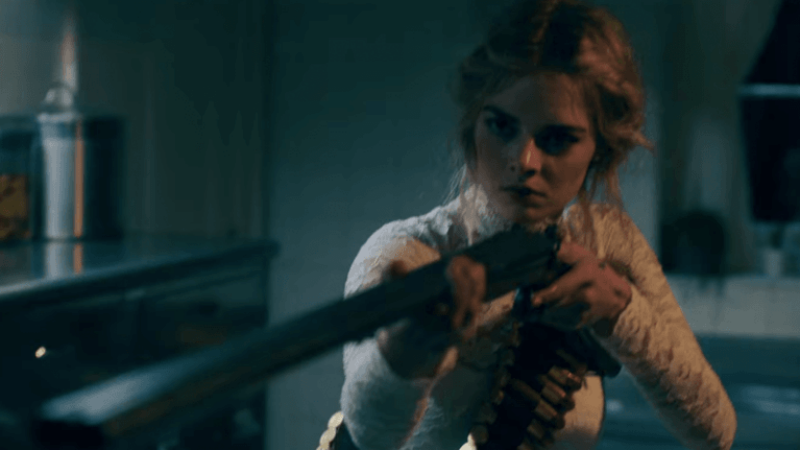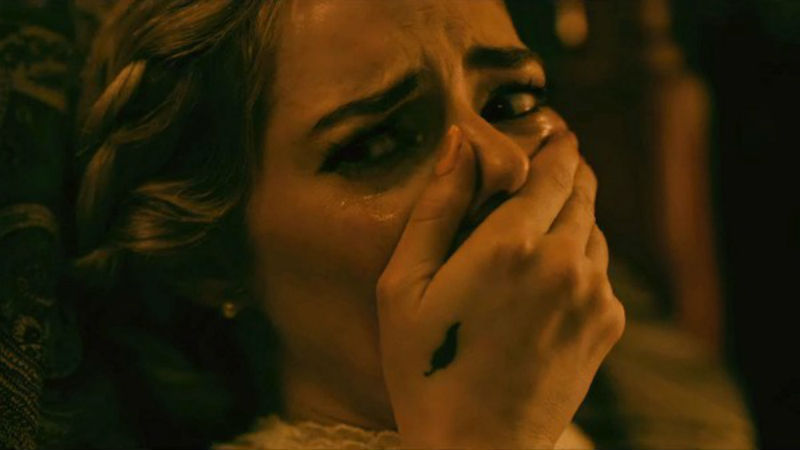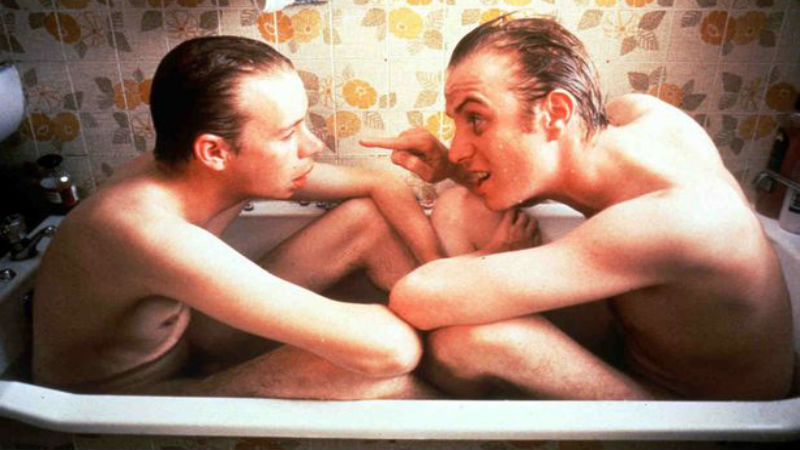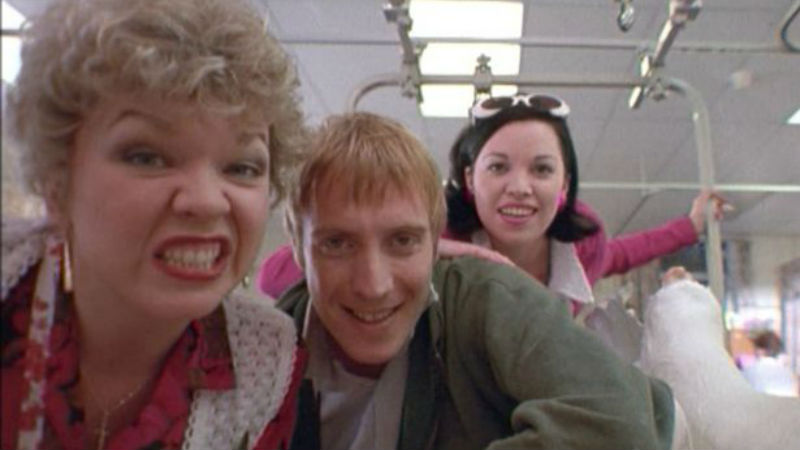QUICK SNAP: LIVE FROM TALLINN
There’s a pleasure to be had in dark or absurdist comedies – the subversion of the written and unwritten rules of etiquette and decency. Spanish director Caye Casas and his co-writer Cristina Borobia’s The Coffee Table (La mesita del comedor), offers audiences a delightful helping of black Spanish humour. It feels decidedly f***ed up, in the best possible way.
The film opens with the screams of a woman in labour. From there we jump forward to a furniture shop, where first time parents, Jesus (David Pareja) and Maria (Estefanía de los Santos), are caught in the crosshairs of a sales assistant. In one moment, he says, “I guarantee that this table, due to its design and standard, will change your life for the better. It will fill your home with happiness.”
Maria runs him in circles, leading him through a series of instances where he contradicts himself. Jesus is besotted with the item because purchasing it against Maria’s wishes will empower him. It’s a decision that will have consequences beyond his worst nightmares, when the couple host Jesus’ brother Carlos (Josep Riera) and his eighteen-year-old girlfriend Cristina (Claudia Riera), who they disapprove of, for dinner that evening.
The filmmaker delays the inevitable revelation of what happened when Jesus was home alone. They carefully build towards their dramatic finale, by toying with interpersonal relationship dynamics, channeling traditional domestic tensions. They also use a dark and uncomfortable sub-plot, with a neighbour, to complicate an already emotionally explosive situation. The film is constructed around the concept of avoidance. It harks back to Alfred Hitchcock’s idea that the audience’s pleasure is in the threat of the bomb exploding. The filmmakers here understand that the thrill of their story is the anticipation, and wisely tease us until they’re unable to any longer.
A carefully orchestrated dance, the back and forth dialogue perfectly plays on what the audience implicitly knows, flirting with an almost sardonic wit that will alienate some audiences.
The filmmaker and the co-writer Casas and Borobia blur the line between black humour, absurdist comedy, and dramatic suspense. I found myself questioning whether I should perceive moments as comedy or the latter – the comedy and tragedy are interchangeable.
The film has a chameleon nature, shifting between the two depending on the point-of-view of the audience. That said, it’s effectiveness lies in the audience being receptive to the humour, as there are certain beats that are intended for a humorous pay-off. But one cannot ignore the pathos of the tragedy that unfolds, and the pleasure of the film is derived from genre tones complementing one another. Nor the interest in critiquing interpersonal dynamics, that drives the thematic interest in cause and effect.
Jesus and Maria’s marriage juxtaposes derisive and affectionate humour, that’s complicated by the feelings towards Carlos and Cristina. Maria derisively refers to him as a paedo, but at dinner, they appear amicable. It creates social tension and a suspicion of how the characters really feel about one another. While the table is viewed as the antagonist, leaning into shades of horror, the provocation is contentious power dynamics and interpersonal relationships. The Coffee Table is a critique of familial relationships snd how we orchestrate our own misfortune and destruction.
As the audience tries to anticipate how events will unfold, the filmmakers find ways to play on the anticipations in a dark and twisted way, especially in the final act. Even as we’re laughing, we appreciate how f***ed up it all is, but it’s so wickedly funny we can only hope for absolution later.
The Coffee Table has just premiered in the Rebels With a Cause Competition of the 26th Tallinn Black Nights Film Festival.














